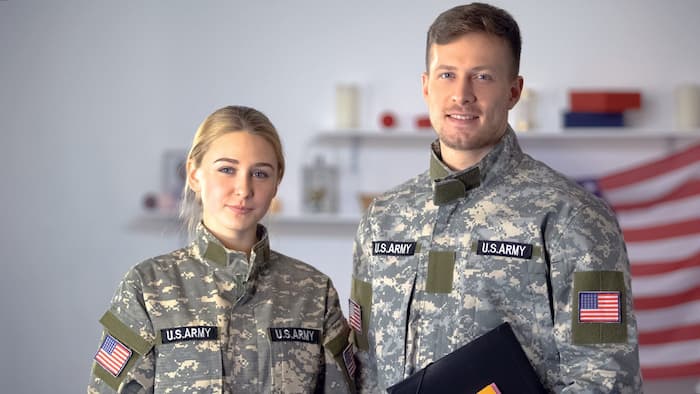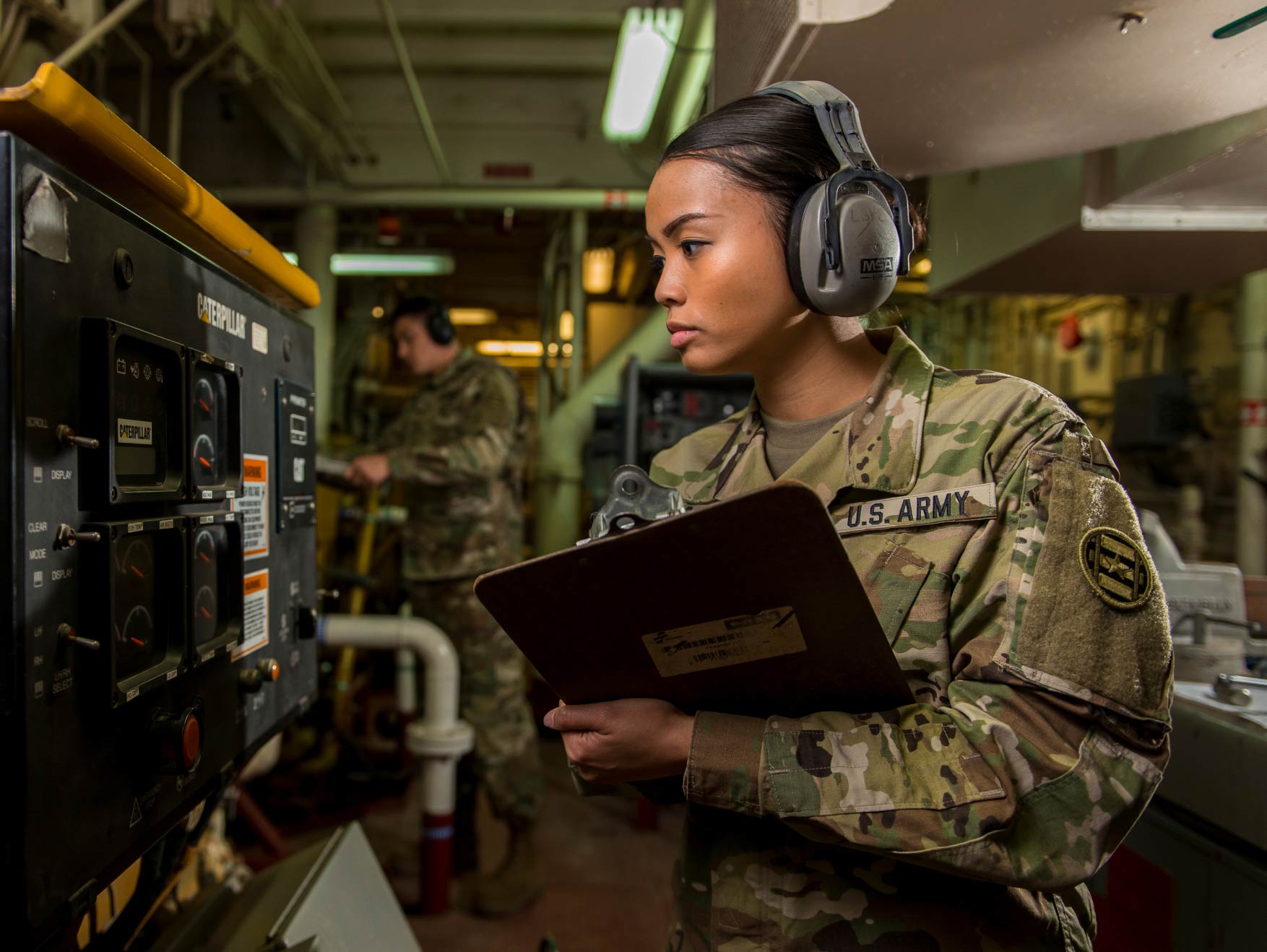The terms and information in our ASVAB Word Knowledge Study Guide will help you improve your ASVAB score in this section. Let’s get this party started!
When you join the US military, you must complete certain evaluations to help you navigate your major specialization in the military branches. Applicants, like all other military branches, must pass the Armed Services Vocational Aptitude Battery (ASVAB), which is traditionally divided into ten test subjects. The results of the test will help determine your eligibility to join or initially enlist in the Air Force, Navy, Coast Guard, Army, National Guard, and other services.
Word knowledge is included in all other tests, and it is equally important in determining an aspiring applicant’s eligibility. Furthermore, it is widely regarded as one of the most important domains to pursue because it will pre-define your vocabulary skills, particularly in times of military operations that rely on verbal deliberations, and honing such skills is a necessary step in leading or supporting a specific military operation.
Our FREE 2025 ASVAB practice test is a great way to get ready for the upcoming exam! To break up the monotony of traditional study methods, thousands of ASVAB practice questions are gamified round by round. Furthermore, many ASVAB full tests will assist you in familiarizing yourself with the actual test format. Our website now has the ASVAB Study Guide 2025 for all 9 parts! Let’s begin practicing right away!
What Is Included In The ASVAB Word Knowledge Test?
The ASVAB Word Knowledge section measures your knowledge and understanding of the word meaning both individually used and when included in a sentence. You may find it difficult to remember a specific word since the English language is so rich. However, our ASVAB word knowledge practice tests are designed and simulated as the actual test to help you adapt to the test format. Improving your language and vocabulary usage will help you both prepare for the ASVAB test and boost your communication ability in your career and personal life.
Your Word Knowledge score is a part of the AFQT score that will determine if you are qualified to enroll in the military. Then, how many word knowledge questions are on the ASVAB? You have to answer 16 questions in 8 minutes on the CAT-ASVAB test, while the paper-and-pencil version asks 35 questions in 11 minutes.
As we continue with the course, take note of these two primary types of questions included in the test:
Literal Definition of a word
These questions let you choose between a set of words that may define the pre-given word.
Example 1:
Nefarious most nearly means,
A. Kindness
B. Thoughtfulness
C. Worthy
D. Evil
With the given choices above, the answer would be D. Evil. Always read the other words to know if it is likely synonymous or antonymous with the given word.
Example 2:
Flabbergasting most nearly means,
A. Plain
B. Dumbfounding
C. Simple
D. Mundane
The answer above would be “B. Dumbfounding.” Like the first note, always read the other given words to know if they are similar in nature and definition.
Example 3:
Idyllic most nearly means,
A. Picturesque
B. Dreadful
C. Flawed
D. Atrocious
It is apparent that the answer would be A. Picturesque, considering that the majority of the given words are antonymous with the questioned word.
Emphasized (italicized or underlined) Term
Unlike the first type of question, the emphasized word would be the crux of the question which can be answered by determining how it was utilized in the pre-given sentence.
Example 1:
Tim told his best friend, Cole,” Break a leg, bro!”
A. You’re a loser
B. Good luck
C. Good riddance
D. You’re welcome
It would be “B. Good Luck.” Break a leg is a common idiom that expresses your support to a certain someone.
Example 2:
As Gary finished the exam, he told his seatmate, Bryan,” Oh dude, the test was indeed a piece of cake.”
A. Difficult
B. Mind-boggling
C. Easy
D. Strong
The answer is “C. Easy.” Like the first example, the phrase “ A piece of cake is a common idiomatic expression used by many people when expressing ease in doing a particular work.

Core Topics To Study/Ponder
Having much knowledge about basic to advanced grammatical appendices is a fundamental setting that is necessary for you to adapt upon taking all ASVAB tests to properly analyze the set of pre-given questions. Among these technical and grammatical components are; roots, suffixes, and prefixes.
Take note: There’s no need to memorize all of the succeeding terms but it’s more convenient to familiarize the entirety of the grammatical components for accurate deliberation.
To put it into perspective, if you’re aware that “anti” means “opposite/against” then you’d be able to figure out that “anti-Covid 19” means a notion against the concurrent Covid-19.
Read more >> ASVAB Mechanical Comprehension Study Guide
Prefixes
To make things clear, the subsequent terms are common prefixes along with their equivalent definition and how it is used in common words.
bene – good – beneficiary
Sample sentence: John is a beneficiary of an international scholarship.
de – opposing term – delimitation
Sample sentence: The research should have its own limit and delimitation manner.
dis – refuse, opposing factor of – disentangle
Sample sentence: Gwyn tried to disentangle the twisted rope.
em- / en – cause to happen – empower – enlist
Sample sentence: You’ll soon be empowered after enlisting in the service.
in- – inside tern – input
Sample sentence: You must always consider the raw inputs and subsequent outputs.
inter – between certain concepts – intermediary
Sample sentence: Jesus is the intermediary between humanity and the Almighty Father.
mid – in between or middle spot – midterms
Sample sentence: It’s crucial to pass the midterms with flying colors.
mis – wrongly, contradictory – misconception
Sample sentence: World as it is, bears a common misconception about life and death.
non – not – non-existent
Sample sentence: Chloe’s best friend is no less than a non-existent being that only resides in her imagination.
over – beyond, over – oversee
Sample sentence: The military force is established to oversee peace.
re – again – revitalize
Sample sentence: The essence of brotherhood revitalizes the sense of belongingness.
semi – initial, halfway – semi-bald
Sample sentence: Joe went to his barber and asked for a semi-bald cut.
under – beneath, below, under – underlying
Sample sentence: Every conflict has its own underlying reason.
Suffixes
Common suffixes along with their meaning word application:
-able – having the capacity – breakable
Sample sentence: True love is not a breakable bond.
-al – relevance – relational
Sample sentence: It’s nice to have an improved relational thinking style.
-ence – instance of activity – commence
Sample sentence: The proctor remarked,” Let the exam commence!”
-ation –manner or process – evolution
Sample sentence: The evolution of man is predicted to be a paradox of life.
-ful – plenty/filled with – wonderful
Sample sentence: Life is indeed a wonderful journey.
-ist – one who epitomizes – specialist
Sample sentence: Our neighbor is a resident medical specialist.
-less – not having, the act of post-removal– boneless
Sample sentence: Have you ever tried boneless milkfish?
-let – small version – piglet
Sample sentence: The mother pig was walking alongside her three piglets.
-ment – act/progress of – development
Sample sentence: Humanity is now at the edge of AI development.
-ness – bearing a certain characteristic – holiness
Sample sentence: We shall abide by the holiness of God’s word.
-er / -or – one who acts or perform – operator
Sample sentence: Mr. Doe is a tractor operator in West Virginia.
Read more >> ASVAB Paragraph Comprehension Study Guide
Roots
Common Roots along with their meaning and word application:
The common roots are words that are the primary origin of other words attached with either a prefix- (before a word) or -suffix (after a word).
bio – means ‘life’ – Biology
cede – going towards – precede
corp – a part of a single body – incorporation
dict – utterance – dictionary
domine – overwhelm/ overcome – domination
form – figure/shape – formulation
fract – breakage/scattered – refraction
graph – outlining – Telegraph
path – experience or feeling – Telepathy
press – deviate – suppress
tract – pulling action – retraction
vok – stimulate or call – evoke
Essential ASVAB Word Knowledge List
Below are the most frequent words that may appear on your ASVAB Word Knowledge exam:
- abandon: forsake; leave behind
- abate: become less in amount or intensity
- abdicate: give up power, duties, or obligations
- abhorrent: offensive to the mind
- abound: exist in large quantities
- abridge: lessen, diminish, or curtail
- abscond: run away, often taking something or somebody along
- abundant: present in great quantity
- acute: ending in a sharp point
- adversary: someone who offers opposition
- affect: have an influence upon
- aggravate: make worse
- allot: give out
- amateur: someone who pursues a study or sport as a pastime
- ambient: completely enveloping
- amity: a state of friendship and cordiality
- anomie: lack of moral standards in a society
- anticipate: regard something as probable or likely
- appraise: consider in a comprehensive way
- arcanum: information is known only to a special group
- obscure: not clearly understood or expressed
- vague: lacking clarity or distinctness
- limber: easily bent
- inertia: the tendency of something to stay in rest or motion
- ambiguous: having more than one possible meaning
- frugal: avoiding waste
- corrugated: shaped into alternating parallel grooves and ridges
- vestibule: a large entrance or reception room or area
- jetty: protective structure extending from the shore into the water
- eulogy: a formal expression of praise for someone who has died
- satchel: luggage consisting of a small case with a flat bottom
- glut: supply with an excess of
- slander: words were falsely spoken that damage the reputation of another
- vicious: having the nature of evildoing
- immerse: cause to be submerged
- lofty: of imposing height; especially standing out above others
- accost: approach and speak to someone aggressively or insistently
- despicable: morally reprehensible
- carcass: the dead body of an animal
- debonair: having a sophisticated charm
- spondee: a metrical unit with stressed-stressed syllables
- spontaneous: said or done without having been planned in advance
- momentous: of very great significance
- offish: lacking cordiality; unfriendly
- transpose: change the order or arrangement of
- fasting: abstaining from food
- inflexible: resistant to being bent
- perish: pass from physical life
- adept: having or showing knowledge and skill and aptitude
- competent: properly or sufficiently qualified, capable, or efficient
- economical: using the minimum of time or resources for effectiveness
- shrine: a place of worship associated with something sacred
- incentive: a positive motivational influence
- levelheaded: exercising or showing good judgment
- reluctant: not eager
- hostile: characterized by enmity or ill will
- surmount: get on top of; deal with successfully
- barred: preventing entry or exit or a course of action
- warily: in a manner marked by keen caution and watchful prudence
- grating: unpleasantly harsh in sound
- vagrant: a wanderer with no established residence or means of support
- scrappy: full of fighting spirit
- dilemma: state of uncertainty in a choice between unfavorable options
- menagerie: a collection of live animals for study or display
- unaccustomed: not habituated to; unfamiliar with
- fluorescent: emitting light during exposure to external radiant energy
- rodent: relatively small placental mammals
- humorous: characterized by the power to evoke laughter
- notary: someone empowered to certify a document’s validity
- knead: use your hands to mix and work something into a uniform mass
- bliss: a state of extreme happiness
- impulsive: without forethought
- interject: speak abruptly, especially as an interruption
- jargon: technical terminology characteristic of a particular subject
- tight: closely constrained or constricted or constricting
- consequence: a phenomenon that is caused by some previous phenomenon
- obliterate: remove completely from recognition or memory
- unison: the state of corresponding exactly
- turmoil: a violent disturbance
- wary: marked by keen caution and watchful prudence
- impair: make worse or less effective
- ravage: cause extensive destruction or ruin utterly
- perpetual: continuing forever or indefinitely
- chide: scold or reprimand severely or angrily
- savory: pleasing to the sense of taste
- inhabit: live in; be a resident of
- fidget: move restlessly
- massive: containing a great quantity of matter
- flaunt: display proudly
- hoist: raise or haul up with or as if with mechanical help
- clumsy: lacking grace in movement or posture
- frail: physically weak
- utilize: put into service
- zest: a tart spicy quality
- prosperous: in fortunate circumstances financially
- defy: resist or confront resistance
- wheeze: the act of breathing with a husky or whistling sound
- luminous: softly bright or radiant
- incinerate: become reduced to ashes
- calligraphy: beautiful handwriting
- prestige: a high standing achieved through success or influence
- profane: grossly irreverent toward what is held to be sacred
- whim: an odd or fanciful or capricious idea
- thrift: extreme care in spending money
- malign: speak unfavorably about
- boggy: (of soil) soft and watery
- eccentric: conspicuously or grossly unconventional or unusual
- haughty: having or showing arrogant superiority
- augment: enlarge or increase
- sublime: of high moral or intellectual value
- hypocrite: a person who professes beliefs that he or she does not hold
- hygienic: tending to promote or preserve the health
- err: make a mistake
- parity: functional equality
- glorify: praise or honor
Conclusion
Finally, the ASVAB Word Knowledge Study Guide is a wonderful resource for anyone preparing for the ASVAB Word Knowledge part. This guide includes a thorough overview of the types of questions you might expect to see on the exam, approaches to these problems, as well as words to know for the ASVAB. You can improve your exam performance by using the ASVAB Word Knowledge Study Guide to build a stronger understanding of vocabulary and word usage. Furthermore, the practice questions and quizzes contained in the guide can assist you in identifying areas that require additional review and practice.
Please don’t hesitate to contact us at [email protected] if any issues arise.




